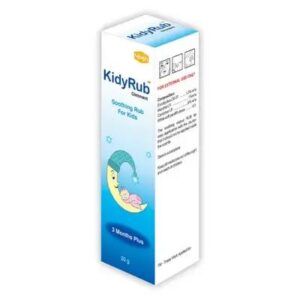EUCALYPTUS OIL + MENTHOL + CAMPHOR
Eucalyptus Oil: Eucalyptus oil is a natural essential oil derived from the leaves of the eucalyptus tree (Eucalyptus globulus). It is commonly used for its therapeutic and medicinal properties. Eucalyptus oil is known for its strong, refreshing scent and is widely used in aromatherapy, as well as in various pharmaceutical and cosmetic products.
The primary use of eucalyptus oil is for respiratory conditions such as coughs, colds, bronchitis, and sinusitis. It works by relieving congestion and clearing the airways, promoting easier breathing. It has antimicrobial properties and can help reduce inflammation associated with respiratory infections.
The mechanism of action of eucalyptus oil is not yet fully understood, but it is believed to work through its active components, including eucalyptol (also known as 1,8-cineole). Eucalyptol has mucolytic and expectorant properties, which helps to break down mucus and relieve congestion.
Eucalyptus oil can be used topically, inhaled, or ingested, depending on the intended use. When used topically, it should be diluted with a carrier oil (such as coconut or almond oil) as it can cause skin irritation in its concentrated form. It can be applied to the chest or added to a warm bath for respiratory relief. When used for inhalation, a few drops can be added to a diffuser or a bowl of hot water to create steam. Ingesting eucalyptus oil should only be done under the guidance of a healthcare professional.
As with any medication or natural remedy, eucalyptus oil may have side effects. It can cause skin irritation, especially in those with sensitive skin. Ingesting large amounts of eucalyptus oil can be toxic and may cause symptoms such as dizziness, nausea, vomiting, and diarrhea. It is important to follow proper dosage guidelines and seek medical advice if any adverse reactions occur.
Additionally, eucalyptus oil should not be used on or near the face of infants or young children, as it can cause breathing difficulties. Pregnant or breastfeeding women should also consult their healthcare provider before using eucalyptus oil.
Overall, eucalyptus oil is a natural remedy that can be beneficial for respiratory conditions, but it should be used with caution and under the guidance of a healthcare professional.
Menthol: Menthol is a topical analgesic used primarily for its cooling and soothing effects. It is commonly found in various over-the-counter products such as creams, gels, and ointments for pain relief, itching, and minor skin irritations.
The mechanism of action of menthol involves stimulating certain nerve receptors in the skin, known as cold receptors or TRPM8 receptors. When applied, menthol produces a cooling sensation by activating these receptors, which in turn release calcium ions and cause a sensation of coldness. This cooling effect helps to relieve pain and reduce itchiness.
The dose of menthol depends on the specific product and its concentration. It is important to follow the instructions on the product label or consult with a healthcare professional for the appropriate dosage and application.
Most commonly, menthol is well-tolerated when used topically. However, some individuals may experience mild side effects including skin irritation, redness, or a burning sensation at the site of application. Some people may also be allergic to menthol and may experience an allergic reaction, such as hives or difficulty breathing. If any severe or persistent side effects occur, it is recommended to seek medical attention.
It is worth noting that menthol should not be ingested or applied to broken or damaged skin unless directed by a healthcare professional. Care should also be taken to avoid contact with the eyes or mucous membranes, as it may cause irritation. Additionally, certain individuals, such as children, pregnant or breastfeeding women, or individuals with certain medical conditions, may require special precautions or should seek medical advice before using products containing menthol.
Camphor: Camphor is a medication that is primarily used topically for its analgesic and cooling effect. It is commonly found in over-the-counter products such as ointments, gels, creams, and lotions. In addition to its analgesic properties, camphor also has mild anti-inflammatory and antiseptic effects.
The main mechanism of action of camphor is its ability to stimulate the nerve endings in the skin, which produces a cooling sensation and helps to relieve pain. It works by desensitizing the nerves that transmit pain signals and providing a numbing effect.
Camphor should only be used externally and should not be ingested or applied to broken skin, as it may be toxic and cause irritation. It is important to follow the recommended dose and duration of use provided by the packaging or as advised by a healthcare professional.
The dose of camphor varies depending on the specific product being used and the individual’s age and condition. It is important to read and follow the instructions provided with the medication. It is also advisable to consult a healthcare professional if any doubts or questions arise.
Although camphor is generally safe when used as directed, there are some potential side effects that should be noted. These can include skin irritation, redness, rash, or allergic reactions. Inhaling or ingesting camphor can lead to more severe symptoms such as nausea, vomiting, stomach pain, dizziness, seizures, or even coma. It is important to seek medical attention immediately if any of these symptoms occur.
Camphor should not be used in infants or young children, as it can cause serious side effects such as seizures or respiratory distress. It is also important to avoid using camphor products near the eyes, mouth, or other mucous membranes.
As with any medication, it is essential to consult a healthcare professional before using camphor, especially if there are any pre-existing medical conditions or if other medications are being taken. The healthcare professional can provide guidance specific to the individual’s situation and ensure the safe and appropriate use of camphor.

